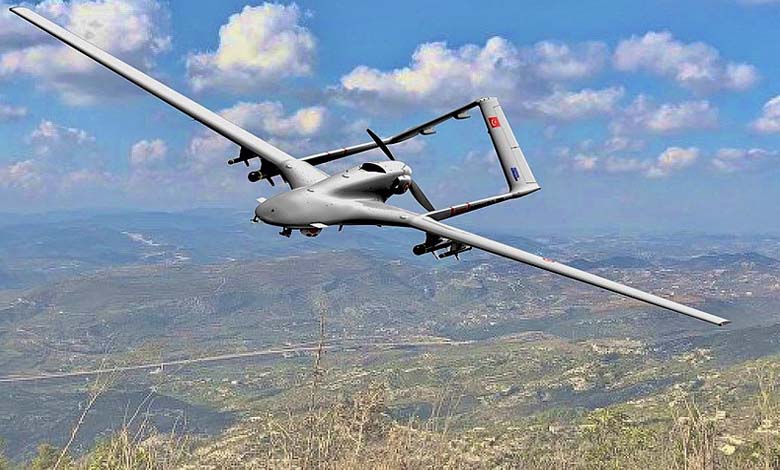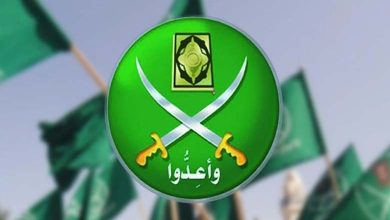“Bayraktar TB2”: The Turkish “Demon” in the Sky

In August 2014, the Turkish drone “Bayraktar TB2” took its maiden flight. By 2021, it had logged over 400,000 flight hours globally.
-
Turkish Bayraktar Drones: Deepening the Conflict and Worsening the Wounds in Sudan
-
Washington warns Ankara against escalation in northern Syria by shooting down a Turkish drone
According to the American website “The National Interest”, if there is an untold or misunderstood geopolitical story of the 21st century, it is Turkey’s rise as a “superpower”.
One of the areas where Turkey showcases its strength is domestic weaponry. Turkey is a global leader in drone technology, and the combat drone “Bayraktar TB2” is a prime example of Turkish military technological prowess, the website notes.
This drone is renowned for reshaping modern warfare dynamics with its affordability, effectiveness, and adaptability.
-
Turkey – Ukraine: agreement to supply Turkish Bayraktar TB2 drones to the Ukrainian Joint Forces
-
With missile platforms and Turkish drones…Yemeni brotherhood meet at the doors of Aden
Manufactured by Baykar, a Turkish defense contractor, the Bayraktar TB2 has become a highly popular system, used both by the Turkish Armed Forces and as an export model. It has been extensively utilized by Ukraine in its war against Russia.
Turkey’s rise as a major military technological power might be attributed to its ongoing exclusion from accessing U.S. and NATO military assets. Deprived of advanced Western technologies, Ankara pursued military self-sufficiency, achieving significant progress over the last decade.
Similarly, the U.S. prohibited Turkey from purchasing armed drones, fearing their use against U.S.-backed Kurdish fighters. This restriction spurred Turkey’s domestic drone industry.
-
The Yemeni brothers gather at the gates of Aden…Turkish missile launcher and “drone”
-
Turkey Supplies Drones and Weapons to Sudanese Army, Used to Kill Civilians and Displace Them
Turkey equipped the TB2 with advanced systems enabling autonomous operations and remote control. Over the past decade, this drone has repeatedly proven its effectiveness, positioning Turkey as a global powerhouse in unmanned aerial vehicle production.
With a distinctive “V”-shaped tail, primarily made from carbon fiber and Kevlar, it carries a payload of up to 330 pounds.
The TB2 integrates electro-optical cameras, infrared sensors, laser designators, and laser rangefinders, making it ideal for intelligence, surveillance, and reconnaissance missions, as well as precise targeted strikes.
-
U.S. Warnings of an “Imminent” Turkish Operation in Northern Syria
-
“Mohajer 6” – Offensive capabilities of the drone used by the Sudanese Army
Operating at an altitude of 25,000 feet and with an endurance of 27 hours, the TB2 can hover over targets for extended periods, enhancing battlefield intelligence flow.
Over the years, Bayraktar TB2 drones have participated in conflicts in Syria, Iraq, and Libya, and were used by Azerbaijan during the Nagorno-Karabakh war. Many believe these drones were instrumental in Armenia’s defeat, and their reputation soared with their use in Ukraine.
-
The Turkish Al-Burhan and his palace in Ankara
-
Washington plans to establish bases for drones in African countries… Why?
A Strategic Choice
In all conflicts where it was deployed, the Bayraktar TB2 performed remarkably, making it a key system produced by Turkey. Its relatively low cost (around $5 million) makes it attractive to countries with constrained defense budgets.
Nearly 24 foreign countries have already purchased these drones, boosting Turkey’s arms industry while enhancing its national influence and prestige.
Buoyed by its success, Turkey has invested in developing a range of systems to enhance the TB2’s capabilities, including the more advanced “Bayraktar TB3” and “Bayraktar Akıncı”, promising superior offensive and surveillance capacities at more competitive prices than the TB2.
-
What are the objectives of Turkish operations in Syria and Iraq, and what are the key scenarios?
-
Gulf Investments: Can they be enough to rescue Turkey from its crisis? Turkish journalist answers












